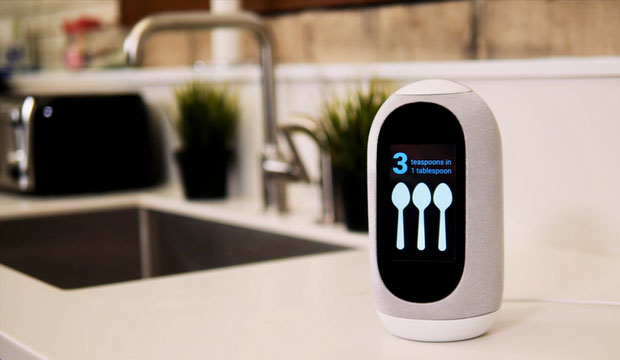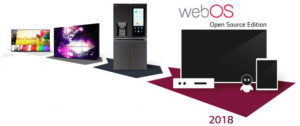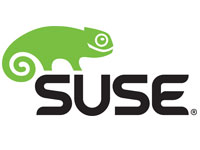Mycroft AI earlier this week announced that its Mark II smart speaker achieved full funding on Kickstarter in just 6.5 hours. As of Wednesday, pledges reached more than three times its US$50K goal — with 23 days remaining in the campaign.
The Mark II is positioned as an open source alternative to the dominant Amazon Echo line of smart speakers and its main challenger, the Google Home device.
One of the main draws of the Mark II is its emphasis on maintaining user privacy, an increasing concern as the market for smart home devices has exploded.
The Mark II offers sophisticated voice control technology with a built-in screen, an optional camera, and a state-of-the-art microphone array, the company said. It protects user privacy by automatically deleting user queries and utilizing open data sets.
Mycroft has a team of developers, engineers, artificial intelligence trainers and technical writers working daily provide functionality, skill and other tools to Mycroft, said COO Nate Tomasi.
Those resources enable the company to compete against the market-leading devices from Amazon and Google, he told LinuxInsider. “The difference is the focus on community and software. We’re not here to sell you paper towels, subscriptions or advertisements. We’re here to build the best voice assistant possible.”
Mark II Feature Set
The Mark II’s six microphones have noise cancellation and beamforming built in, allowing the device to pick up individual voices over background music. The speaker uses open data and Deep Speech voice assistant technology developed with Mozilla, plus audio technology in partnership with Aaware. Users can customize the wake word that orders the speaker to execute a command.
The Mark II is the first commercial device that uses Deep Speech to understand commands in English, according to Mozilla. Its Persona technology recognizes contextual speech, which enables the virtual assistant to discern whether a user’s speech is sarcastic or serious, for example.
The Mark II can control a number of Internet-connected devices. Mycroft has been working on IoT integrations with a variety of platforms, including Wink, Home Assistant and Hue, according to Tomasi.
The company plans a beta release of the voice assistant in February, and a 1.0 release by 2019, he said.
The company originally launched the Mark I smart speaker in 2015, after a Kickstarter campaign that raised $193,000 enabled Mycroft to evolve from an open source project into a viable company.
However, the original device mainly found a home with hardcore open source fans, with about 1,500 backers receiving it last summer.
Jaguar Land Rover made a strategic investment of $110,000 in Mycroft during early 2017, and the companies have worked to integrate the voice assistant technology into Jaguar F-Type sports cars.
Mycroft closed a $1.75 million series of seed funding earlier this month, which it will invest in software development. Another Series A round is planned for later this year, Tomasi said.
Privacy and Profit
Although Mycroft’s privacy focus addresses the concerns of some consumers, it could limit the Mark II’s ability to learn user preferences, which is how AI uses voice technology to develop a smarter engine.
“The privacy aspect of the offering is compelling,” said Rob Enderle, principal analyst at the Enderle Group.
However, “it is through the data capture that AI becomes truly intelligent, translating what it learns about you into improved ways to interact and anticipate your needs” he told LinuxInsider.
Services that constantly listen to speech patterns and responses use that information to build a more intelligent engine, observed Paul Teich, principal analyst at Tirias Research.
“The business challenge is that most people don’t understand the privacy implications of smart speakers well enough to put up with what will rapidly become a sub-par experience,” he told LinuxInsider. “They will value the convenience and conversation of mass market speakers.”
The launch comes at a time when the competition for the smart speaker market is incredibly intense. Amazon remains the dominant maker of smart speakers, but Google has begun to make serious inroads in market share.
Amazon has an installed base of 31 million units, or 69 percent of the U.S. market, while Google Home has 14 million units, or 31 percent of the market, according to estimates from Consumer Intelligence Research Partners.
The installed base of smart speakers grew by about 18 million units during the fourth quarter, and Google Home accounted for about 40 percent of that growth, according to the firm.
Apple just announced plans to release its long-delayed HomePod smart speaker, a $349 model that will compete at the upper end of the market against Sonos and the new Google Home Max, a $399 device.
The Mark II will be priced at $129, and the company is in discussions with retailers, but Tomasi said the device likely will be a white label product.






















































